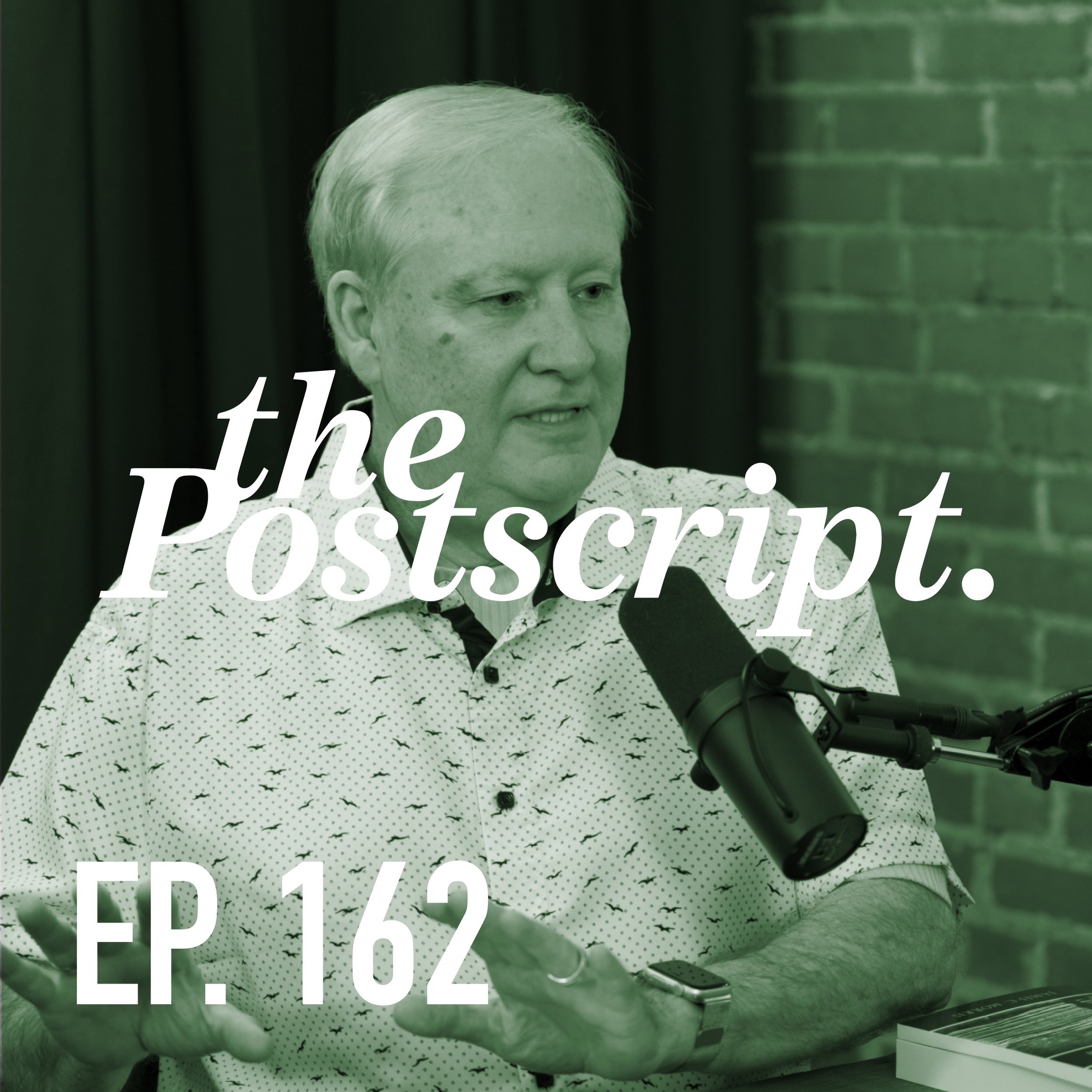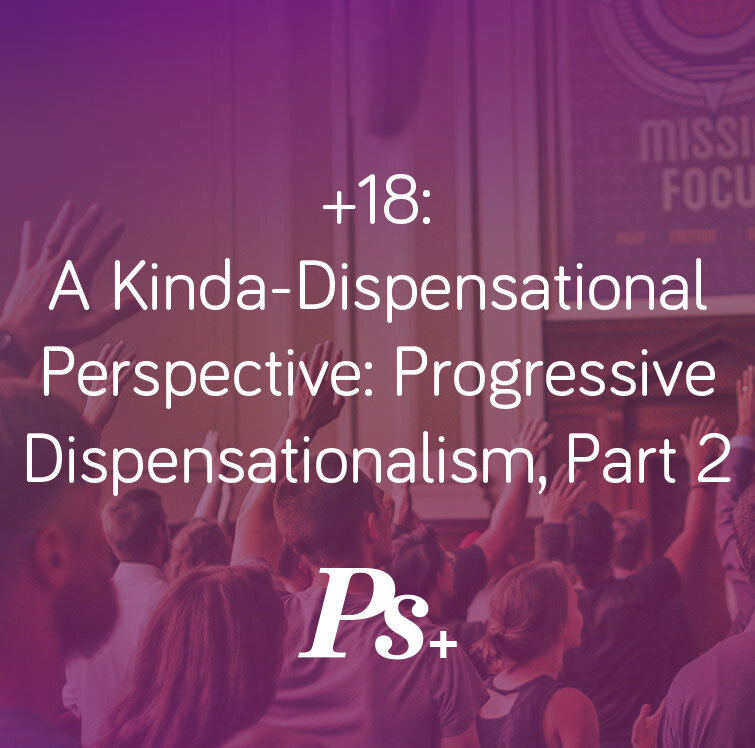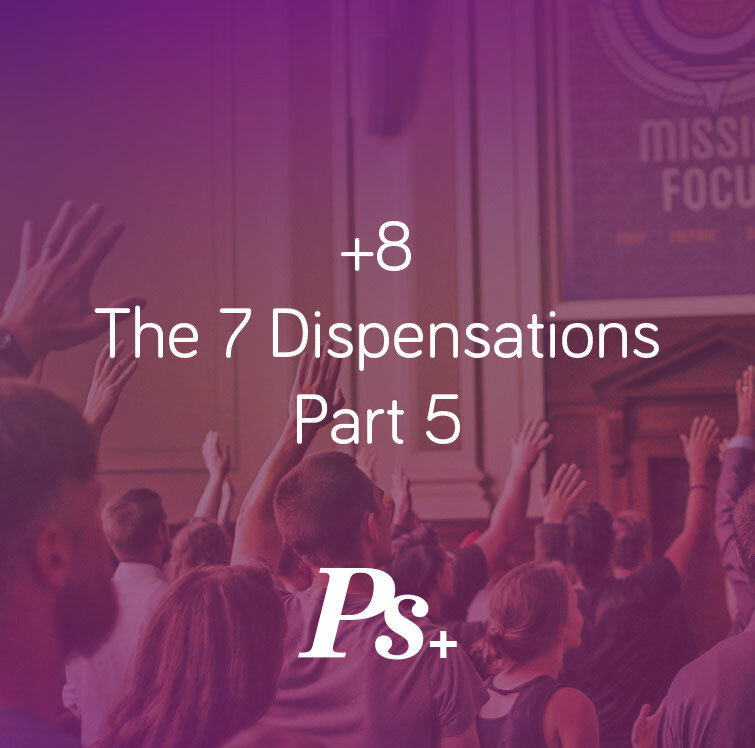The Postscript is a podcast and YouTube series that invites listeners into in-depth theological and ministry conversations with pastors, Bible scholars, missionaries, and professors.
Host of the Postscript is Brandon Briscoe, provost of the Living Faith Bible Institute and associate pastor at Midtown Baptist Temple
New episodes of the Postscript release weekly
Episode Finder:
Episode 209: What Are Spiritual Gifts & Why do We Get Them So Wrong?
The church has been fitly joined to accomplish God’s will in this world. This is confirmed in Scripture. Ephesians 4:16 says, "From whom the whole body fitly joined together and compacted by that which every joint supplieth, according to the effectual working in the measure of every part, maketh increase of the body unto the edifying of itself in love."
God has provided each individual with unique gifts that they might contribute to the work of their local church to meet the needs of the brethren, and achieve the objectives of the Great Commission.
Like many biblical teachings, there have been confusing and false teachings surrounding the subject of spiritual gifts. The Christian predilection for spiritual experience has given way to justifying much of these false teachings.
Today on the Postscript, Provost of Living Faith Bible Institute, Brandon Briscoe, will be discussing spiritual gifts with Dr. Chris Best, Missiology instructor at LFBI – asking what the Bible has to say about the gifts and how they function to further our faith and God’s will.
Episode 198: What Is the Unpardonable Sin?
The word "pardon" means to relieve someone of the burden of their legal consequences. In a Christological understanding of this concept, Christ shed his blood and rose from the dead in order to suffer in our stead and relieve us of the consequences of hell (1 Cor. 15:1-4, Ro. 6:23, Ro. 10:9-10, Col. 1:13-14) . In his grace and mercy, he pardoned our sin (Eph. 2:8-9, Ro. 11:6). Now, in some Christian circles, there are some that hold to the idea that there is a sin that is so terrible that it is deemed unpardonable. They believe that to commit this sin will cause you to lose your salvation or perhaps prohibit you from ever receiving it. The problem is, among those that believe in the unpardonable sin, they can’t all agree on what it is, which makes it even scarier. Its ambiguity makes it feel like you are in a constant state of danger - walking through a minefield at night, hoping you don’t misstep because it might cost your eternity. This is obviously a topic with serious repercussions, so we have to know what the Bible is saying on this subject. To help us better understand what the Bible says about the unpardonable sin, we have invited Dr. Chris Best, missiology instructor to have a conversation with the provost of Living Faith Bible Institute, Brandon Briscoe, on this important topic regarding biblical soteriology.
Visit https://www.lfbi.org/learnmore
Episode 176: The Fallacy of Replacement Theology & the Dangers of Anti-Zionism
In today’s episode with pastor Sam Miles, president of Living Faith Bible Institute, we discuss the definitions and errors of Supersessionism (otherwise called Replacement Theology or Fulfillment Theology) and Covenant Theology. We also look at how redefinition of Scriptural terms by these groups ignores literal dispensations of God’s dealings with humanity in Scripture and His promises to specific audiences. This man-made hermeneutic along with made-up covenants gives way to an allegorical approach to God’s Word where the nation of “Israel” is changed to “the Church.” This conflation of God’s promises to Israel with God’s promises to the church, unfortunately results in an anti-zionist attitude as exemplified in the writings and actions of the most famous Church Fathers all the way down through history to today.
Pastor Sam walks us through a few biblical passages which show us the prophets of old together with the Lord Jesus Christ plainly declaring that Israel has an eschatological purpose which literally will come to pass as surely as Christ rose from the dead.
Visit https://www.lfbi.org/learnmore
Episode 162: The Ancient History of Dispensationalism
We speak with Dr. Alan Shelby, Dean of LFBI, about the historical roots of a dispensational view of Scripture. Dr. Shelby explains the need for right divisions in understanding the Bible and emphasizes Dispensationalism as the hermeneutic that supports the most literal interpretation of the Scriptures. He defines Dispensationalism then highlights how it differs from other methods of interpretation that begin with human reasoning and often skeptical pre-suppositions. He explores the early modern roots and heritage of Dispensational thought, as well as the historical roots of positions such as premillennialism, the pretribulation rapture, imminent return of Christ and forms of Christian zionism. He traces these perspectives back to the very disciples of the twelve apostles, marking the connection of a fellowship of believers through God's Word that has lasted through history.
Visit: https://www.lfbi.org/learnmore
Episode 103: Three Forms of Application & the Significance of Context
In this episode we speak with lead pastor Brian Hedges of Heartland Bible Fellowship in Harrisonville, MO about the importance of context in Bible study. All of the Bible is written for us but not all of it is written specifically to us (2 Tim. 3:16). We also look at the three aspects of a proper hermeneutic: historical, doctrinal & inspirational applications of God’s Word.
Episode 86: Covenant Theology, Soteriology & Fake Muscle Tees
In this episode we continue with Ps+ host Van Sneed. We pick up our conversation from episode 76 which regarded biblical dispensations. In this episode we walk through the covenant definitions often espoused by covenant theologians & discuss why this framework for dividing the Bible falls short historically, doctrinally & devotionally.
+19: Wrapping Up Dispensational Theology
In this episode of the Ps+ we finish our study of Dispensationalism by reviewing and reflecting on its purpose and benefits.
+18: A Kinda-Dispensational Perspective: Progressive Dispensationalism, Part 2
In this episode of the Ps+ we take a look at some of the hermeneutics of Progressive Dispensationalism.
+17: A Kinda-Dispensational Perspective: progressive Dispensationalism, Part 1
In this episode of the Ps+ we compare the essential elements of Classic Dispensationalism with that of Progressive Dispensationalism.
+15: A Non-Dispensational Perspective: Covenant Theology, Part 3
In this episode of the Ps+ we take a look at the doctrine of Salvation from the viewpoint of Covenant Theology
+14: A Non-Dispensational Perspective: Covenant Theology, Part 2
In this episode of the Ps+ we take at some scriptural evidences put forth by proponents of Covenant Theology
+13: A Non-Dispensational Perspective: Covenant Theology, Part 1
In this episode of the Ps+ we take a look at biblical covenants and compare them with those outlined in Covenant Theology.
+12: Dispensational Distinctives, Part 3
In this episode of the Ps+ we continue looking at the doctrinal perspective of Dispensationalism, focusing on the literal interpretation of scripture.
+11: Dispensational Distinctives, Part 2
In this episode of the Ps+ we continue looking at the doctrinal distinctives of Dispensationalism, focusing on the Kingdom of Heaven and the Kingdom of God.
+10: Dispensational Distinctives, Part 1
In this episode of the Ps+ we begin looking at the doctrinal distinctives of Dispensationalism, starting with the three people groups in scripture.
+9: The 7 Dispensations, Part 6
In this episode of the Ps+ we continue to explore Dispensationalism by looking at the seventh dispensation: the millennium.
+8: The 7 Dispensations Part 5
In this episode of the Ps+ we continue to explore Dispensationalism by looking at the sixth dispensation: the Age of Grace.
+7: The 7 Dispensations, Part 4
In this episode of the Ps+, we explore the transitional nature of the book of Acts and how it functions as a bridge between the Old and New Testaments.
+6: The 7 Dispensations, Part 3
In this episode of the Ps+ we continue to explore Dispensationalism by looking at the fifth dispensation: the Law
+5: The 7 Dispensations, Part 2
In this episode of the Ps+ we continue to explore Dispensationalism by looking at the third and fourth dispensations: Human Government and Patriarchs.























